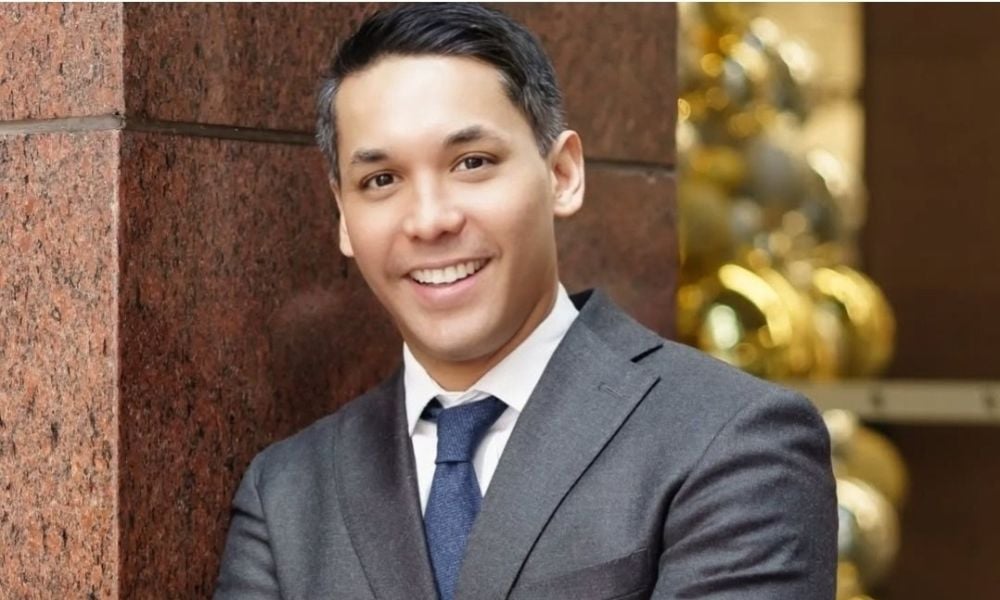Karl Cheong emphasizes structure, expertise as he leads a push into ETFs from a firm largely known for its mutual funds

Karl Cheong doesn’t mind a challenge. The new executive VP and Head of ETFs at Ninepoint Partners secured his role by convincing the firm’s CEO that he could help them grow their business — which has largely focused on mutual funds, flow-through funds, and the advisor channel — by driving advisors and DIY investors alike to their ETFs. New in his role at Ninepoint, Cheong told WP how he plans to leverage his 20+ years of experience in ETFs and help his new firm break into a crowded ETF market.
“I saw an opportunity to build out the ETF-specific platform at Ninepoint, where we can use the firm’s current core philosophy to differentiate ourselves in this market, because that’s the hardest part [about ETFs], there are more than enough competitors, so we are going to have to stand out,” Cheong says.
His approach begins with leveraging Ninepoint’s existing areas of expertise. The firm holds over $7 billion in assets, largely in its mutual funds. It has, however, a great deal of expertise in flow through funds, alternatives strategies, and in energy. While only around $500 million of the firm’s total assets are in its ETF business, Cheong explains that its energy strategies dominate that share, representing strong uptake in an area where Ninepoint boasts established expertise. Some of Cheong’s strategy for wider ETF growth involves translating the expertise of his team into other segments of the ETF market.
That includes, he notes, expertise on other commodities. It also includes core alternative strategies and segments of the market where they could possibly drive some outsized return for investors. It even involves wading into the US equity ETF space, an area with a heavy saturation of choice already out there. He notes the recent hire of Samarjit Mitter as a senior portfolio manager as one of the key steps they’ve taken towards differentiation in the US equity ETF space. Mitter, Cheong explains, was previously a portfolio manager with AGF, where he was responsible for the firm’s US Small & Mid Cap Fund, which had been the top performer in its category in 2024. Adding that expertise, Cheong notes, is essential to gaining traction in the Canadian ETF market.
Cheong is also keenly aware of the solutions that have tended to resonate with Canadian investors and advisors. He highlights yield, transparency, and tax-efficiency as traits that many Canadians seek in their investment funds and something that he expects will resonate among ETF investors. He also notes some of the areas where Ninepoint will likely not be building out ETFs. Namely, the heavily saturated low-fee index tracking market.
One of the reasons Cheong was drawn to Ninepoint, he says, is the firm’s more flexible and flat structure. He prefers to operate in less rigid environments, he says, and the culture at Ninepoint fit with his tendency to prefer an ‘entrepreneurial’ atmosphere. That flexibility, he says, should also encourage greater innovation in the way his firm leverages their expertise to launch and market ETF strategies.
Cheong’s new role comes with a significant goal, taking Ninepoint’s ETF AUM from $500 million to between $2 and $2.5 billion over the next three to five years. In addition to strategy launches and thought leadership, Cheong says that his firm will begin leveraging new forms of media to market themselves. In addition to their established relationships in the advisor channel they will also look more closely at DIY investors, who tend to prefer buying ETFs.
Despite a market with more ETF products per dollar of assets than in the United States, Cheong still believes there’s room to grow in Canada. He notes that the Canadian industry remains quite “top heavy” with a few players dominating market share. He thinks that gives smaller ETF shops like Ninepoint room to grow, especially as they find market segments that remain underpenetrated. They should also benefit, he says, from the organic growth of the industry which is set to reach $1 trillion in assets by 2032. As he looks to capture more of that growth, Cheong believes he’s now at an ideally placed firm.
“We can add some good value here. We’re nimble, we’re flexible, and we can add alpha,” Cheong says. “Our current operation very much has an active tilt to it. We have a great portfolio management team that can execute positions that are not well covered by other fund providers, and that means we can certainly provide alpha.”



